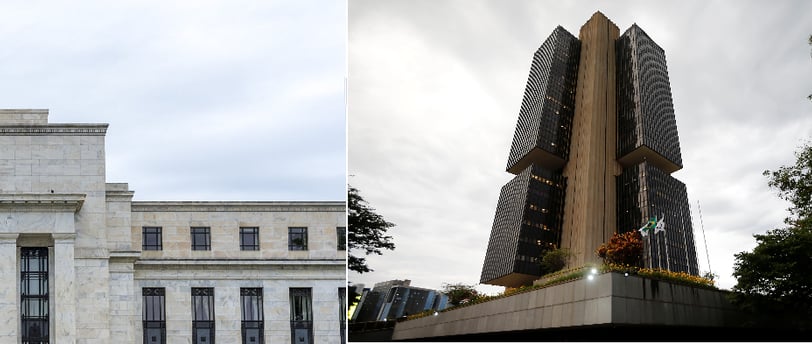Crucial Meetings: The Impact of Central Bank and Federal Reserve Decisions on Interest Rates
Crucial Meetings: The Impact of Central Bank and Federal Reserve Decisions on Interest Rates
9/18/20242 min ler


Introduction
This week, all eyes are on the meetings of the Central Bank of Brazil and the Federal Reserve of the United States, which will take place over two days. These meetings are crucial, as the monetary authorities of both countries will have to make fundamental decisions on interest rates that will influence not only their economies, but also the global economy.
The Expectations of the Central Bank of Brazil (BC)
The Monetary Policy Committee (Copom) of the Central Bank is widely expected to raise the Selic rate. This measure is a response to a persistent inflationary scenario that has affected the purchasing power of Brazilians. The Copom must consider several factors when deciding on the rate adjustment, including inflation expectations for the future and the effects of its current monetary policy on economic growth.
Possible Decisions by the Federal Reserve (Fed)
Meanwhile, on the other side of the Atlantic, the Federal Reserve of the United States is under pressure to cut interest rates, a move that could stimulate economic growth in an environment where inflation is beginning to show signs of cooling. The Fed’s decision has substantial implications not only for the US economy but also for global financial markets. Interest rate cuts could encourage increased investment and consumption, helping to comfort the economy in a period of uncertainty.
Implications of Monetary Decisions
The decisions to be made by the Brazilian Central Bank and the Federal Reserve will impact banks, businesses and consumers. In Brazil, an increase in the Selic rate could result in higher interest rates for loans, which generally slows consumption and could lead to a slowdown in economic growth in the short term. On the other hand, the expectation of interest rate cuts in the United States is seen as an opportunity to reinvigorate the local economy, but it could also generate volatility in emerging markets, including Brazil.
In short, the meetings of monetary authorities in both countries on Tuesday are a critical point of observation for economists and investors. What is decided in this period could not only shape the immediate economic future, but also influence global monetary trends and policies in the coming months.
Address
Brazil, DF
Subscribe to our newsletter
Contacts
55 61 9939.82860
loja@revistatrader.com.br